What is a Marine Biologist?
A marine biologist is someone who is interested in learning and studying marine organisms and what their lives are like in their natural habitats. There are a vast array of career choices one can pick from - from studying large ocean animals and what they eat to investigating environmental conditions that often affect them. Everything from whales to microscopic organisms, and everything else in between, can become a specialization.
Research projects are at the heart of what most marine biologists do, whether it be actually collecting specimens in the field, compiling research data, finding real life applications for the research data, or classroom teaching.
What does a Marine Biologist do?
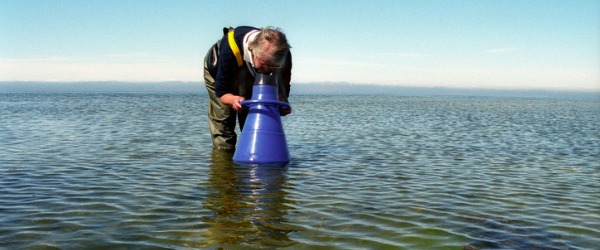
Marine biology is a learning and research field and is an umbrella term that houses many specializations. In a nutshell, marine biologists study a variety of organisms and ecosystems in the ocean and other saltwater environments.
While jobs for marine biologists can vary from place to place, the following list includes some general responsibilities:
- Reviewing research and literature
- Collecting field and samples for analyses
- Researching organisms and their behaviour
- Analyzing organisms in their ocean environment
- Using instrumentation to track and measure organisms
- Analyzing the health of various components within the ocean environment
- Working to rebuild damaged ecosystems
- Using computer modelling to build predictive data
- Consulting for programs that aim to monitor pollution
- Monitoring environmental compliance
- Cooperating and providing assistance to coast guard units
Senior marine biologists responsibilities can include:
- Guiding agencies and regulations so as to monitor ecosystems
- Putting together grant proposals to fund research
- Drafting scientific papers
- Reporting research findings
- Facilitating a team environment with strong communication
- Presenting research findings to policymakers and stakeholders
- Educating the public about issues
- Determining jurisdictions for laws and regulations
- Developing and coordinating the scope of work for projects
- Calculating budgets and schedules for projects
- Writing impact statements and environmental assessments
- Sharing data with advocacy organizations
There are many careers that a marine biologist can branch into. The following are a few examples:
Marine Biotechnologist
A variety of products can be derived or developed from marine animals and plants. This is the specialized area of marine biotechnology, which also includes aquaculture (where aquatic organisms are grown for food, fuel, cosmetics, and pharmaceuticals).
Marine biotechnology applications can be quite diverse and can range from extracting new cancer treatments to seaweed farming. Scientists trained in marine biology, microbiology, chemistry, genomics and bioinformatics are sought out to work for new pharmaceutical companies that concentrate on developing new drugs from marine resources.
Marine biotechnology can be described as making practical and effective use of marine macro- or microorganisms to make products, technologies, and processes available. It covers areas such as health, aquaculture, cosmetics, industrial products and processes, food supplement, feed, and plant protection.
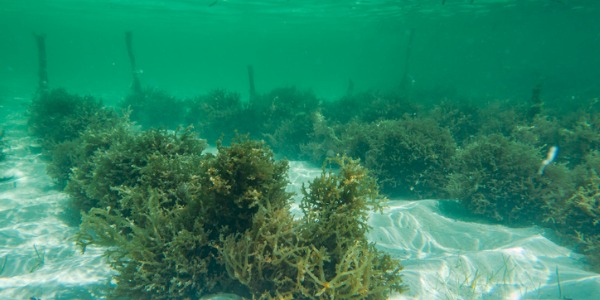
Oceanographer
Oceanography can be separated into four distinct areas - biological, physical, chemical, and geological. Each type of oceanographer has different job duties and work environments:
-
Biological oceanographers examine plants, microbes and animals and review how ocean contamination can affect marine species. They are similar to marine biologists in that they look at life forms and ecosystems, however they also study how external factors impact life forms in the oceans. Their main focus is relationships in the ocean. For example, they will research things like thermal vents and the ecology of life around them, or study the chemical effect that subaquatic earthquakes can have on an ocean's makeup and on the lifeforms that rely on it. Biological oceanographers will also look at external factors such as storms, trade winds, El Nino, atmospheric pressure, temperature fluctuation etc., and study how these factors might impact an ocean's ecology.
-
Physical oceanographers focus on understanding ocean circulation patterns and fluid motion by studying the ocean's attributes (temperature, salinity, waves, currents and tides). Physical oceanography can be divided into descriptive and dynamical physical oceanography. Descriptive physical oceanography is research of the ocean through observations and complex numerical models which try to describe the fluid motions as precisely as possible. Dynamical physical oceanography specifically looks at the processes that control the motion of fluids, mainly with theoretical research and numerical models.
-
Chemical oceanographers look at the chemical composition of the ocean and its interaction with the environment. They study it's acidity and try to understand how the biology and ecology of an ocean might be altered based on a changing chemical profile (many plants and animals don't do well in certain acidities and cannot flourish when seawater is too acidic or not acidic enough). When an ocean's chemical composition becomes too unbalanced, it can have an extreme effect on the ecology.
-
Geological oceanographers (or geophysical oceanographers) research the ocean floor and use geophysical technologies to examine the makeup of the ocean bedrock and the processes of rock movement. Many work in fossil fuel prospecting (searching for new oil and gas pockets), understanding how subaquatic tectonic plates work, mapping and dating rock formations, surveying ocean geological features, or in ensuring sustainability of our ocean floors (protecting them from human activity such as mining).
Aquarist
Aquarists care for marine life in aquariums by feeding and observing them and by maintaining their living environments. This career often requires a great deal of physical activity and time spent under water.
Aquarists are in charge of keeping the water and tanks clean and at the right temperature, and sometimes fixing damaged equipment. They often have hands-on interactions with the fish and other underwater creatures in order to detect any indication of injury or illness (being a certified diver is typically a prerequisite) and they capture sick animals so they can be seen by a veterinarian. Aquarists may also provide presentations to educate the public or design exhibits for the aquarium. They may also be required to travel to other locations to collect specimens that could be used in the aquarium.
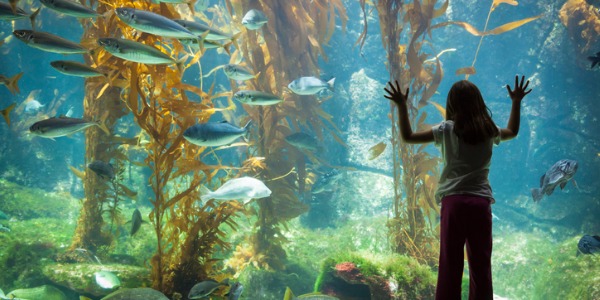
Hydrologist
Hydrologists analyze water resources and study the distribution, circulation and physical properties of surface and underground waters. They usually work in a specialized area such as rivers, oceans, or groundwater, and often help environmental scientists preserve and clean up the environment. Water properties are studied, such as the effects of erosion, pollution, or the cycles of water flow by using computer prediction models. Hydrologists might also come up with proposals for wastewater systems, hydroelectric power, or sustainable uses of irrigation. These proposals as well as written reports on any findings may be presented to the public or to the government.
Ichthyologist
An ichthyologist studies all fish species and is knowledgeable about their behaviour, developmental patterns, and reproductive habits. Some ichthyologists work in museums and educate the public about fish species and conservation awareness. Diving certification may be needed for underwater research. When working out in the field, ichthyologists collect samples, measure, and record data. They then examine and record their specimen findings in the lab. At times, ichthyologists come across new types of fish and may even have the privilege of naming a new species.
Many ichthyologists go on to earn master's or doctoral degrees, which allow more opportunity for specializing and offer options in research and academia. Those that work in conducting research spend time writing and publishing scientific papers and writing proposals to secure grants that will fund research projects. They will also give lectures and participate in student projects.
Marine Mammalogist
Marine mammalogists study the behaviour and habits of marine mammals. They can choose to specialize in:
- cetaceans (whales, dolphins, and porpoises)
- pinnipeds (seals, sea lions, and walrus)
- manatees
- other aquatic mammals (polar bears and sea otters)
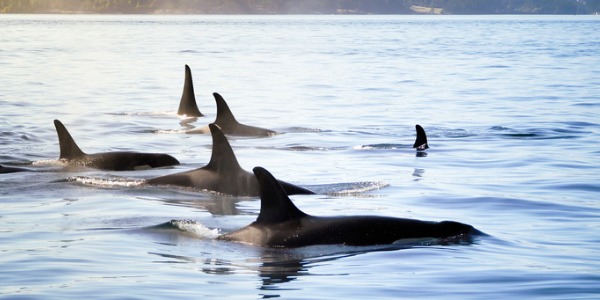
Marine mammalogy covers several areas:
- history (the study of how a species lives)
- taxonomy and systematics (study of their classification and evolution)
- anatomy and physiology
- ethology (behaviour)
- ecology (how they interact with their environment)
A marine mammalogist may choose to work in a specific area, such as research, education, training, or rehabilitation. Some go even further and study only one aspect of a specific species, such as the behavioural interactions of whales. Many marine mammalogists work outside conducting studies in the ocean and wetlands, often relying on equipment such as scuba gear, sonar devices, video equipment, computers, robotic instruments, boats, traps, and nets. Researchers collect and analyze data, design studies, supervise research assistants, write grant proposals, and publish study findings in professional journals.
Fishery Biologist
Fishery biologists study fish for various reasons: to increase the number of endangered species; to decrease the number of overpopulated species; to help conserve natural habitats; to understand how fish respond to diseases (in hopes of finding medical cures for humans); and to see how the environment affects the life cycles of fish (urban development and industrial waste can negatively affect various fish habitats).
Some fishery biologists collect samples and document statistics while on a boat. Others conduct experiments in fish hatcheries or near streams and lakes. Marine fishery biologists focus on fish that live in the ocean while fishery limnologists work with freshwater fish.
Professor/Teacher
Marine biology is a learning and research field, and many marine biologists, therefore, work in coordination with universities and other educational institutions. In fact, many marine biologists are also teachers and professors during the winter months when less work is being done in the field. An academic career starts by obtaining a Doctorate before moving on to research assistant, lecturer, and professor.
What is the workplace of a Marine Biologist like?
Oceanography centres, laboratories, aquariums, research boats and vessels are some of the possibilities for field workplaces. It would not be unusual to find a marine biology graduate working in a tide pool, a swamp, a mangrove forest, a coral reef, or any place on earth that supports marine life. Travel to interesting places is one of the possible perks for a career in marine biology.
Laboratory work could involve working directly with the federal government, or the Environmental Protection Agency (EPA), or on behalf of a university's research program. Virtually every body of salt water on the planet is being studied by marine biologists, from the Caribbean seas to the arctic ocean. Nonprofit organizations are also a major employer for marine biology graduates since they fund studies and research projects for commercial products. Drug companies conduct marine research as well, as marine life is often at the cutting edge of research.
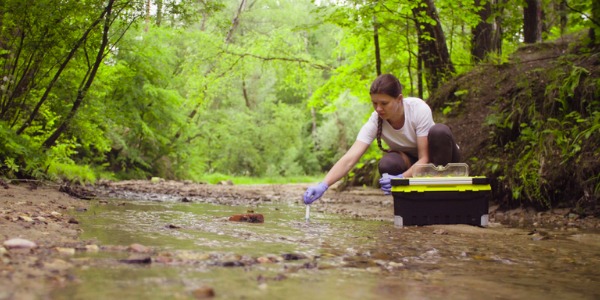
Frequently Asked Questions
Is there a lot of travel associated with being a marine biologist?
Travel is really dependant on what type of marine life you are going to study. If you work in a lab, then obviously you will do very little travelling, if at all. If you get a job at the zoo or at an aquarium, the position will be based there, with perhaps the occasional need to travel for a research project. If you are researching the migration of whales or are doing deep sea research, then you can expect to be travelling and to be out at sea for extended periods of time.
What is it like being a marine biologist?
The wonderful thing about a career in marine biology is how varied the work is. Because the specific subject areas one can focus on are almost limitless, there really isn't a typical day for a marine biologist. Some might research the migration of whales, while others might study the tiny plankton, microbes, and even the seawater itself.
A day for one marine biologist might involve scuba diving for mussels in the morning, bringing them back to the lab for observation in the afternoon, recording any relevant data, and doing some statistical analysis (using a computer) by comparing studies already done by other scientists. A day for another marine biologist may be teaching undergraduate students or guiding postgraduate students into the world of discovery research.
Many marine biologists focus on research papers. For example, a marine biologist may study the effects of oil or chemical spills released into the ocean on plant and animal life. They may then present their research papers at scientific conferences, and/or publish the results of their research in scientific journals.
What is some good advice for marine biology students?
-
The best way to learn about marine life and how the ocean works is to do research. Talk to your professors, and get to know them. It is one of the best investments you can make as they are the ones that are running the labs and doing the research. They also know other professors/scientists doing research, and know who needs help, with what, and where.
-
If you are interested in scuba diving, learning how to dive is a valuable skill. One of the quickest ways to get in with the researchers at a university is to know how to dive. Researchers are always looking for divers, and you'll probably get many offers to help out with various research projects.
-
Take some computer programming courses. Scientists live in a world of data, so knowing how to program is essential.
-
Consider taking a research semester abroad. There are quite a few programs that will allow you to go abroad, do research, and get course credit.
Should I become a Marine Biologist?
Before committing to a career in marine biology, make sure that you have certain personality traits, that you possess or are prepared to cultivate some specific skills, and that you have a realistic view of the job!
Required Personality Traits & Skills
- Interest in, curiosity about, appreciation for different forms of marine life
- Interest in the scientific process
- Ability to use logic and reasoning to solve problems
- Passion for conducting research and synthesizing information
- Commitment to producing unbiased research results
- An inquiring mind, attention to detail, and excellent observation skills
- Predilection for working with specialized equipment and instruments
- Proficiency in scientific and analytical software
- Strong organizational and record keeping skills
- Ability to excel in a team environment and effectively deal with differences in opinion
- Stamina to endure long hours of fieldwork
Facts about the Job
It’s not all glamorous So, you want to talk to the manta rays and plunge into warm, crystal clear tropical waters. That is the prevailing image of the job. It is not the prevailing reality. While marine biologists do sometimes have the chance to get close to amazing marine life, their work isn’t just about exciting dives and close encounters with deep sea creatures. Research is not limited to the warm sunshine of the South Pacific. It can also take place during monsoons and rainy seasons or in the freezing cold and stormy waters of the Arctic, the Baltic, and the Irish Sea. At times, there are boring administrative tasks to complete and research reports and funding proposals to write. And time spent in the field conducting primary research can be long and tedious.
It’s not just about dolphins The myth is that marine biology focuses primarily on large mammals like dolphins and whales. The truth is that it is extraordinarily diverse. It involves the investigation of numerous habitats and animals, from miniscule larvae to massive cetaceans. Marine biologists also study invasive species and toxic algae. In fact, very few students end up working with marine mammals.
It’s about patience Working in the field can be fascinating. But it can also be frustrating. Many a marine biologist can tell stories of spending months onboard a research vessel or on a remote island and coming back with no useful data, simply because the creature they were looking for did not show up. This is not a job for the impatient.
Studying is for life There is one particular, very simple truth about being a marine biologist and it is this: To keep up with the pace of science, you will be studying for your entire life. You will come to appreciate the wonders of chemistry or a math formula. While the prospect of lifelong learning is enticing for many people, make sure that you are one of them before committing to the career.
Water versus lab / Wetsuit versus laptop Perhaps the most important thing to realize as you consider this career is that marine biologists spend more time in the lab and with their laptop than in the water and with their wetsuit. Databases, statistics, and Excel spreadsheets are an integral part of their daily life. They are obsessed with and passionate about data collection and data analysis.
However…
Being a marine biologist means meeting a lot of interesting and inspiring people from all over the world.
Some marine biologists are incredibly lucky to work for at least a part of their lives in beautiful tropical locations, diving among sharks, mantas, whales, dolphins, and schools of fish.
Marine biologists’ passion and research can inspire change and quite literally, help save the planet.
What are Marine Biologists like?
Based on our pool of users, marine biologists tend to be predominately investigative people. This characteristic is emblematic of theses scientists. They venture into seas and oceans to observe marine life and their behavior patterns. They conduct analysis on the data they collect. They conduct research and controlled experiments. They study the impact of human activities, with a view to shaping policies on marine conservation. They are, in so many ways, investigators.
Are Marine Biologists happy?
Marine biologists rank among the happiest careers. Overall they rank in the 95th percentile of careers for satisfaction scores. Please note that this number is derived from the data we have collected from our Sokanu members only.
95% Happy! While there may not be hard data to explain this rather amazing statistic, it may, quite simply, have its basis in the undeniably joyous aspiration of marine biology: to understand and protect the planet through the coming together of humans and other species.
How long does it take to become a Marine Biologist?
Most positions in the field of marine biology call for a Master’s degree. The typical education track, therefore, lasts between five and six years. The track is extended for individuals who pursue teaching or independent research roles, which commonly require a Ph.D.
Bachelor’s Degree – four years Master’s Degree – one to two years Doctorate Degree – three to four years
Steps to becoming a Marine Biologist
A fascination with marine life at a young age is often the catalyst for an education and a career in marine biology. Perhaps the greatest challenge presented by the diverse field is choosing one among many marine sciences occupations.
Marine Biologists are also known as:
Ocean Biologist
Marine Scientist
Marine Life Biologist